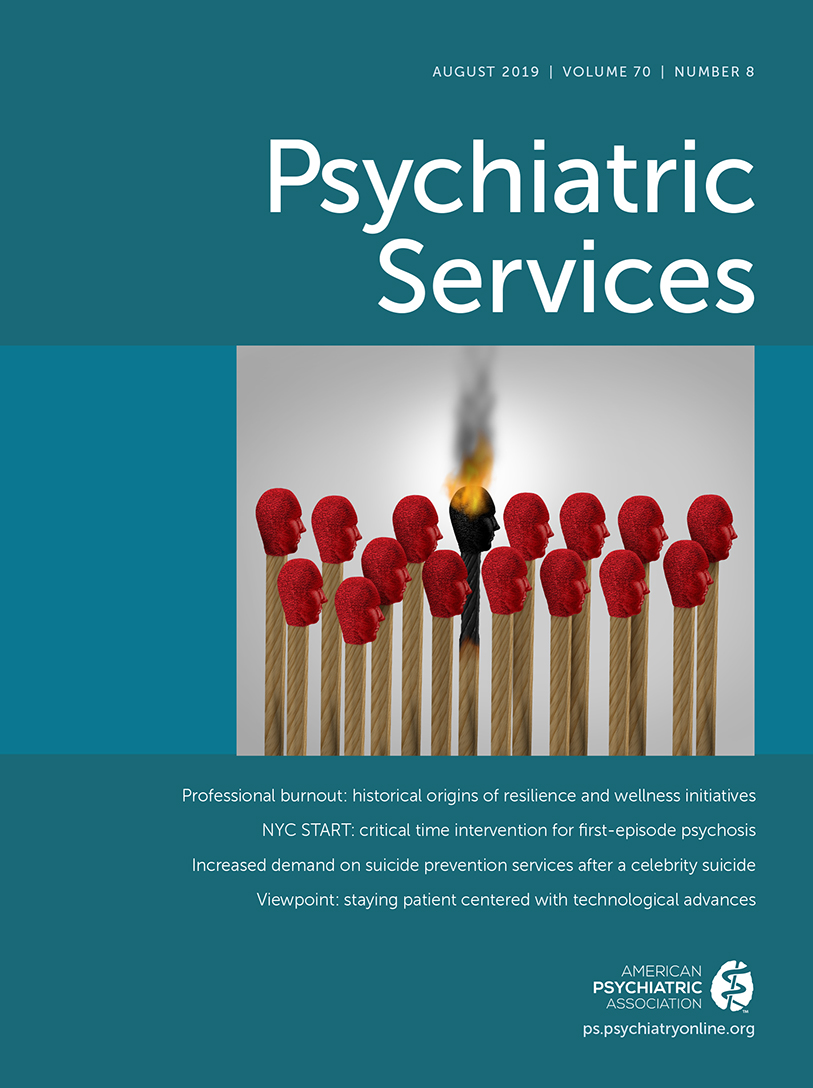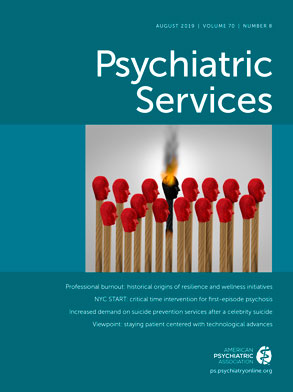Comprehensive services for people with first-episode psychosis (FEP) continue to be established. However, in many settings they are not fully integrated with the existing mental health system, creating discontinuities in care. The onset of psychotic illness is a crisis in the life of the person experiencing it. Over 30 years of international clinical and research experience have shown that an early, sustained, and broad response to FEP results in the best outcome. Yet discontinuities in care inhibit optimal outcomes for many people with FEP. As noted by Anderson et al. (
1), a key issue in treating FEP is ensuring that any hospitalized individual is discharged to appropriate follow-up treatment. The NYC START program is a pragmatic response to this issue, in a large and seemingly fragmented mental health system in New York City. NYC START addresses the hospital-outpatient treatment gap by using a critical time intervention that acts as a bridge between the hospital and coordinated specialty care outpatient treatment. However, as successful as this bridge between the two systems has been, could it be offered sooner?
In nearly all health systems, mental health care operates under significant strain from a combination of high demand and underfunding in relation to the health burden of mental illness. This reality often leads to delays in first admissions after behavioral manifestations of illness arise. Law enforcement personnel are frequently present, which can be an extremely traumatic introduction to care for an individual and his or her family. Further compounding this trauma, first admission often introduces patients to environments populated by older people with chronic illness who are currently experiencing their own acute crises. This setting presents a pessimistic outlook to the individual and his or her family precisely when they need assurance that, with good care in a good FEP program, prospects for recovery are much better than they may think.
An important rationale for establishing FEP programs is to reduce the trauma associated with entering care. By making the introduction to care a positive experience, FEP programs aim to increase early engagement with treatment and thereby reduce the duration of untreated psychosis. This early engagement allows for the central purpose of FEP treatment to be achieved: to promote recovery and minimize the development of disability.
To accomplish this goal, FEP programs should aim to identify young people who are becoming psychotic—before needing hospitalization. This requires that programs have not only a comprehensive range of treatment options for young people who come to their programs but also well-developed community engagement, awareness, education, and case-finding functions.
Good FEP programs are proactive in reaching out to the medical community in their area and providing education around FEP to promote early referral. Similar initiatives are often also conducted with educational providers. However, where possible the net should be cast wider to include others who often encounter young people, including sports coaches and volunteers (e.g., scouts, youth group, or other community group leaders). These programs should also try to engage those who are more likely to encounter marginalized young people, including police, transport police, and employees and volunteers working with homeless young people.
Research has shown that raising community awareness actively contributes to reducing the duration of untreated psychosis by bringing people into care before they need hospitalization. Similar recent work has taken advantage of online and social media (e.g., the STEP clinic’s MindMap program).
FEP programs also need to respond to the demand that these activities may create—with outreach and out-of-hours capability and with staff acting as the case finders, building bridges to the community to reduce hospitalization of young people who develop psychosis.
The interventions provided in FEP programs acknowledge the many domains of life that are affected by psychosis. As well as building these interventions into their services, programs that establish new FEP services or revitalize existing ones must commit energy and resources to engaging their communities. By doing so, they will increase the chances of finding the young people who need these programs as early as possible and ideally before they need to be hospitalized.

